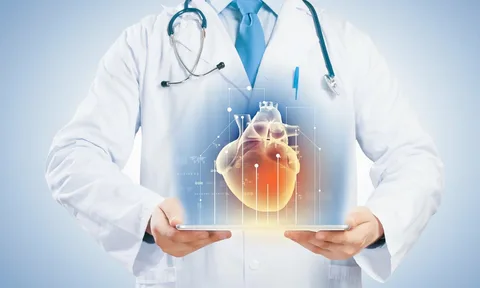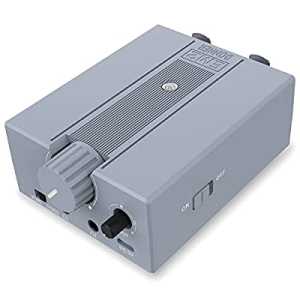
The Role Of Cardiac Surgery In Treating Heart Disease

Cardiac surgery plays a crucial role in treating various heart diseases, providing patients with a chance at a healthier life. Over the years, advancements in medical science have significantly improved the outcomes of cardiac surgeries, making them safer and more effective than ever before. If you are searching for a cardiac surgery in Seawoods do consider Dr. Kalkekar’s CURA Advanced Cardiac Clinic for an effective solution for your heart health.
Types of Heart Disease Treated by Cardiac Surgery
Coronary Artery Disease
One of the primary conditions treated by cardiac surgery is coronary artery disease (CAD). This condition occurs when the arteries that supply blood to the heart become narrowed or blocked due to plaque buildup, leading to chest pain (angina) or a heart attack.
Heart Valve Disorders
Heart valve disorders involve abnormalities in the valves of the heart, affecting blood flow. Cardiac surgery can repair or replace damaged heart valves, restoring normal function and preventing complications such as heart failure.
Congenital Heart Defects
Congenital heart defects are structural abnormalities present at birth. Cardiac surgery is often necessary to repair these defects and improve the overall function of the heart.
The Role of Cardiac Surgery in Treating Coronary Artery Disease
Coronary Artery Bypass Grafting (CABG)
CABG is a common surgical procedure used to bypass blocked coronary arteries. During CABG, a healthy blood vessel from another part of the body is grafted onto the coronary artery, creating a new pathway for blood flow to the heart muscle.
Percutaneous Coronary Intervention (PCI)
PCI, also known as angioplasty, is a minimally invasive procedure used to open blocked or narrowed coronary arteries. A catheter with a balloon at its tip is inserted into the blocked artery and inflated to widen the artery and improve blood flow.
Cardiac Surgery for Heart Valve Disorders
Valve Repair vs. Valve Replacement
In some cases, damaged heart valves can be repaired using surgical techniques that preserve the natural structure of the valve. However, severe valve damage may require valve replacement surgery, where the damaged valve is replaced with a prosthetic valve.
Transcatheter Aortic Valve Replacement (TAVR)
TAVR is a less invasive alternative to traditional valve replacement surgery for patients with aortic valve stenosis. During TAVR, a collapsible prosthetic valve is inserted into the heart through a catheter, eliminating the need for open-heart surgery.
Treating Congenital Heart Defects with Cardiac Surgery
Repairing Structural Abnormalities
Cardiac surgery is often necessary to repair structural abnormalities in the heart, such as holes in the heart walls or abnormal blood vessel connections.
Palliative Procedures
In cases where complete repair of congenital heart defects is not possible, palliative procedures may be performed to improve symptoms and quality of life.
Advancements in Cardiac Surgery Techniques
Recent advancements in cardiac surgery techniques have revolutionized the field, allowing for safer and more precise procedures.
Minimally Invasive Surgery
Minimally invasive techniques involve smaller incisions and specialized instruments, resulting in faster recovery times and reduced scarring for patients.
Robot-Assisted Procedures
Robot-assisted cardiac surgery allows surgeons to perform complex procedures with enhanced precision and control, improving outcomes for patients.
Recovery Process After Cardiac Surgery
Hospital Stay and Monitoring
After cardiac surgery, patients typically spend several days in the hospital for monitoring and post-operative care.
Rehabilitation and Lifestyle Changes
Following discharge from the hospital, patients undergo cardiac rehabilitation to regain strength and improve cardiovascular health. Lifestyle changes, such as diet modification and regular exercise, are also essential for long-term recovery.
Complications and Risks Associated with Cardiac Surgery
Despite advancements in surgical techniques, cardiac surgery carries certain risks and complications that patients should be aware of.
Infection
Infection at the surgical site or within the chest cavity is a potential complication of cardiac surgery that requires prompt treatment with antibiotics.
Bleeding
Excessive bleeding during or after surgery may occur, requiring blood transfusions or additional surgical interventions to control.
Arrhythmias
Irregular heart rhythms, or arrhythmias, may develop following cardiac surgery, necessitating medication or other interventions to stabilize the heart rate.
Benefits of Cardiac Surgery
Despite the risks involved, cardiac surgery offers numerous benefits for patients with heart disease.
Improved Quality of Life
Many patients experience significant improvements in symptoms and quality of life following cardiac surgery, allowing them to resume normal activities and enjoy a higher level of functioning.
Increased Life Expectancy
Cardiac surgery can prolong life expectancy for patients with severe heart disease, reducing the risk of heart failure, stroke, and other complications.
Cost of Cardiac Surgery and Insurance Coverage
The cost of cardiac surgery varies depending on factors such as the type of procedure, hospital fees, and post-operative care. Fortunately, many health insurance plans cover cardiac surgery, making it more accessible to those in need.
Choosing the Right Cardiac Surgeon and Facility
Selecting a skilled and experienced cardiac surgeon and a reputable healthcare facility is crucial for ensuring the best possible outcomes.
Experience and Expertise
Look for a surgeon who specializes in cardiac surgery and has a track record of successful outcomes for the specific procedure you require.
Hospital Reputation and Facilities
Choose a hospital with a strong reputation for cardiac care and state-of-the-art facilities, including advanced imaging technology and dedicated cardiac intensive care units.
Future Trends in Cardiac Surgery
The future of cardiac surgery holds promise for even more innovative treatments and techniques.
Gene Therapy
Gene therapy may offer new avenues for treating heart disease by targeting the underlying genetic causes of cardiovascular disorders.
Stem Cell Therapy
Stem cell therapy shows potential for repairing damaged heart tissue and restoring cardiac function in patients with heart failure.
Patient Stories and Testimonials
Real-life accounts from patients who have undergone cardiac surgery can provide valuable insight into the experience and outcomes of treatment.
Conclusion
Cardiac surgery plays a vital role in treating heart disease and improving the lives of patients worldwide. With ongoing advancements in surgical techniques and innovative treatments on the horizon, the future looks bright for those in need of cardiac care.
FAQs
Q: What is the recovery time after cardiac surgery?
The recovery time varies depending on the type of surgery and individual patient factors. However, most patients can expect to return to normal activities within a few weeks to a few months following surgery.
Q: Can all heart diseases be treated with surgery?
While many heart diseases can be effectively treated with surgery, not all conditions require surgical intervention. Your cardiologist will determine the most appropriate treatment plan based on your specific diagnosis and medical history.
Q: Are there any alternatives to cardiac surgery?
In some cases, alternative treatments such as medication, lifestyle changes, or minimally invasive procedures may be recommended instead of surgery. It's essential to discuss all available options with your healthcare provider.
Q: How long does a cardiac surgery procedure typically last?
The duration of a cardiac surgery procedure varies depending on the complexity of the surgery and other factors. Some surgeries may take several hours to complete, while others may be shorter.
Q: Is cardiac surgery covered by health insurance?
Many health insurance plans cover cardiac surgery, although the extent of coverage may vary depending on your insurance provider and policy. It's advisable to check with your insurance company regarding coverage and any out-of-pocket expenses.
Author Bio
Article Comments
No Comments!
At present there are zero comments on this article.
Why not be the first to make a comment?
Similar Articles
Search Pages
Upgrade User Account
account to full use of editor,
including hyperlinks
Article Categories
There are zero sub-categories in this parent category.
There are zero sub-categories in this parent category.











